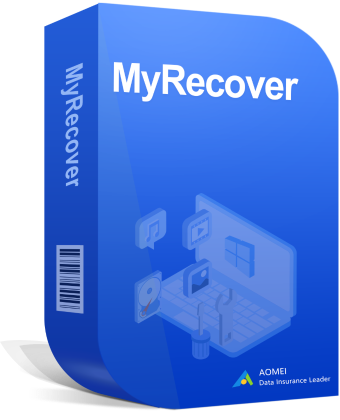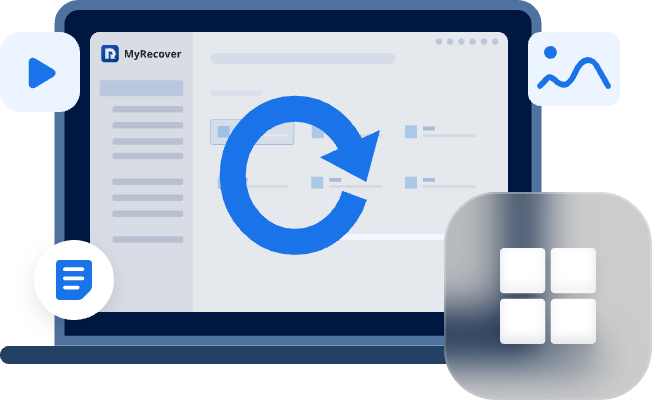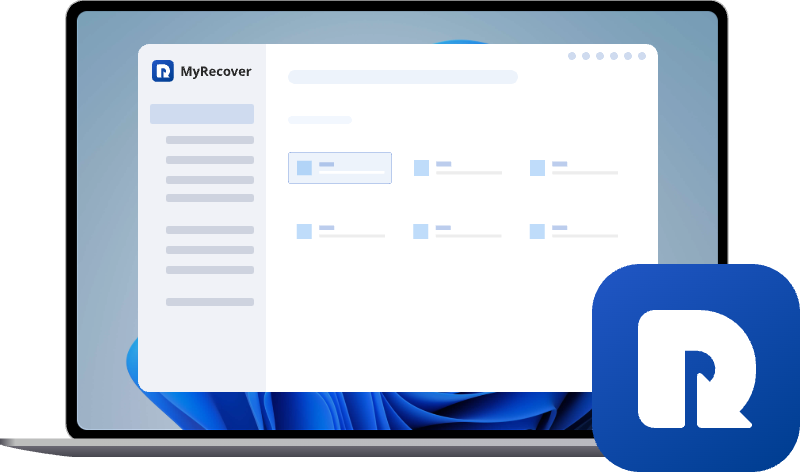Computer Hard Disk Data Recovery| Freeware Download
Learn how to perform computer hard disk data recovery with easy-to-follow steps and effective tools. This guide covers everything from causes of data loss to using top-rated hard disk data recovery software to recover data from a hard drive quickly and safely.
When Do You Need Computer Hard Disk Data Recovery?
Losing important files from your computer's hard drive can be stressful, especially if the data is personal, work-related, or irreplaceable. Fortunately, computer hard disk data recovery offers hope in many data loss scenarios. Below are the most common situations where hard disk data recovery becomes necessary:
- Accidental Deletion – Important files or folders are mistakenly deleted and not found in the Recycle Bin.
- Formatting – The hard drive or partition was accidentally formatted, erasing all stored data.
- Corruption – The file system becomes corrupted due to improper shutdowns, power failures, or software issues.
- Virus or Malware Attack – Malicious software deletes, hides, or encrypts your data.
- Hard Drive Failure – Mechanical issues, bad sectors, or aging hardware cause the disk to become unreadable.
- Partition Loss – Entire partitions disappear due to errors, improper operations, or repartitioning.
- Operating System Crash – The system fails to boot, locking you out of your data.
- Unexpected Power Loss – Sudden power cuts can corrupt files or damage the disk.
- File Transfer Errors – Interrupted or failed transfers can lead to data loss.
- Human Errors – Mistaken overwriting, improper disk handling, or wrong commands can result in lost data.
If you face any of these scenarios, using hard disk data recovery tools can help retrieve your lost or inaccessible files.
Popuar Computer Disk Data Recovery Tools [Free]
When it comes to recovering lost files from your hard drive, there are a few trusted free tools you can rely on. Two notable options for Windows users are "Windows File Recovery" and "MyRecover".
1. Windows File Recovery (Offered By Microsoft)
Developed by Microsoft, Windows File Recovery is a free command-line utility designed to recover deleted files from internal or external drives. It supports various file systems like NTFS, FAT and exFAT. Although it lacks a graphical user interface, it’s a powerful tool for tech-savvy users comfortable with command-line input.
Highligts:
😄Supports recovery from formatted or corrupted drives
😄Works with HDDs, SSDs, USB drives, and memory cards
😄Includes different recovery modes (Regular, Extensive, Segment, and Signature)
Limitations:
😟The lack of a graphical interface may pose a challenge for beginners.
😟Only work on Windows 10 and Windows 11.
Step 1. Go to the Microsoft Store, search for "Windows File Recovery", and click "Get" to install the tool on your Windows 10 or Windows 11 PC.
Step 2: Press "Windows + S", type "cmd", right-click on "Command Prompt", and select "Run as administrator".
Step 3: Understand thebasic command syntax: winfr source-drive: destination-folder /mode /switches
Example:
winfr F: E: /regular : recover files from F: drive to E: drive using the regular scan mode (quickly find all deleted files)
winfr F: E: /Regular /n *.mp3: recover all ".mp3"files from drive "F:" and save them to folder "E:" drive using the "Extensive"mode.
Step 4: Choose a Recovery Mode
/regular – For recently deleted files on non-corrupted NTFS drives
/extensive– For formatted or corrupted NTFS, FAT or exFAT drives
/segment – For recovering files with known file structures
/signature – For recovering files by type (e.g., PDF, JPEG)
Step 5: Use Additional Switches (Optional)
/n– Filter by file name or type (e.g., "*.jpg", "*\Documents\report.docx")
/y: – Specify file types for Signature mode
Step 6: Start Recovery
Review the command and press "Enter" to begin the recovery process. The tool will display progress and results in the command window.
2. MyRecover (Free Version)
MyRecover is a user-friendly data recovery software developed by AOMEI. It offers a clean interface and step-by-step process, making it ideal for users with little to no technical experience. The free version allows you to scan lost files and recover up to 500MB of data for free.

- Deep and quick scan modes for effective lost data search and recovery.
- Supports over 1,000 file types including photos, documents, videos, and more
- Compatible with 500+ storage devices: internal/external SSD/ HDD drives, USB flash drive, SD card, and more.
- Intuitive UI, no command-line skills needed. Only simple clicks can finish computer hard disk data recovery.
- Covers 500+ data loss scenarios: accidental deletion, formatting, partition loss, system crash, RAW drive, virus attack, disk corruption, and more.
- Work seamlessly on all editions of Windows 11, 10, 8, 7 and Server 2025, 2022, 2019, 2016, 2012, etc.
❌Limitation: The free version has a data recovery cap (500MB), which can be lifted by upgrading to Professional or Technician.
Step 1: Visit the official Awebsite. Download the free version and follow the on-screen instructions to install it on your Windows PC.
Step 2: Launch the program. On the home interface, you’ll see a list of available drives. Select the drive or partition where you lost your data, then click "Scan".
Step 3: Then MyRecover will automatically perform a "Quick Scan" for searching for deleted files. If you are trying to recover data from formatted drive, it will start a "Deep Scan":
- "Quick Scan" locates recently deleted files.
- "Deep Scan" digs deeper for files lost due to formatting, corruption, etc.
Step 4: Once the scan is complete, you can use filters like file type, modified date, file size or file name to locate your lost files quickly. Check the boxes next to the files you want to recover. Click "Recover".
Step 5: Then choose a safe location on a different drive (not the original one) to avoid overwriting.
Wait for the recovery process to finish. The time required will depend on the number and size of files being recovered. You’ll see a success message once recovery is complete.
Navigate to the recovery location you selected earlier by click the path link or "Browse" button to verify your recovered files. Open a few of them to confirm file integrity and usability.
In the End
Losing data from your computer hard drive can be frustrating, but it’s not the end of the road. Whether caused by accidental deletion, formatting, or system crashes, your valuable files may still be recoverable. Tools like "Windows File Recovery" offer advanced options for experienced users, but if you prefer a faster, easier solution with no technical hurdles, MyRecover is a highly recommended choice.
With its intuitive interface, wide file type support, and coverage of 500+ data loss scenarios, MyRecover makes computer hard disk data recovery effortless,even for data recovery from crash computers. Don’t wait until the situation worsens — try MyRecover today and restore your lost files in just a few clicks.


